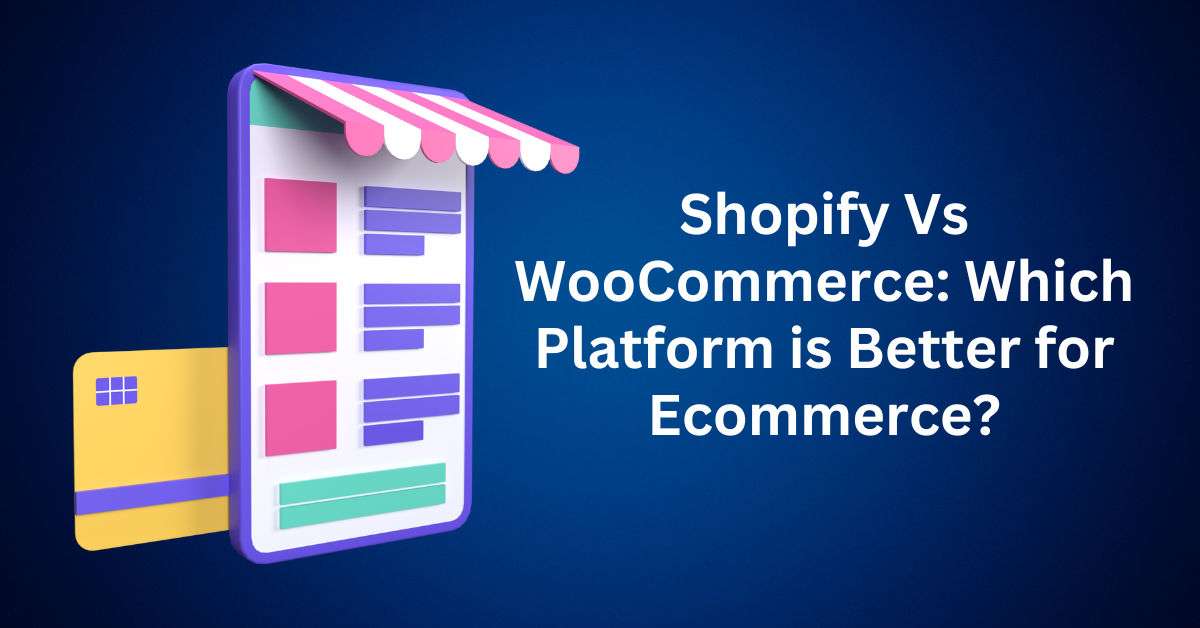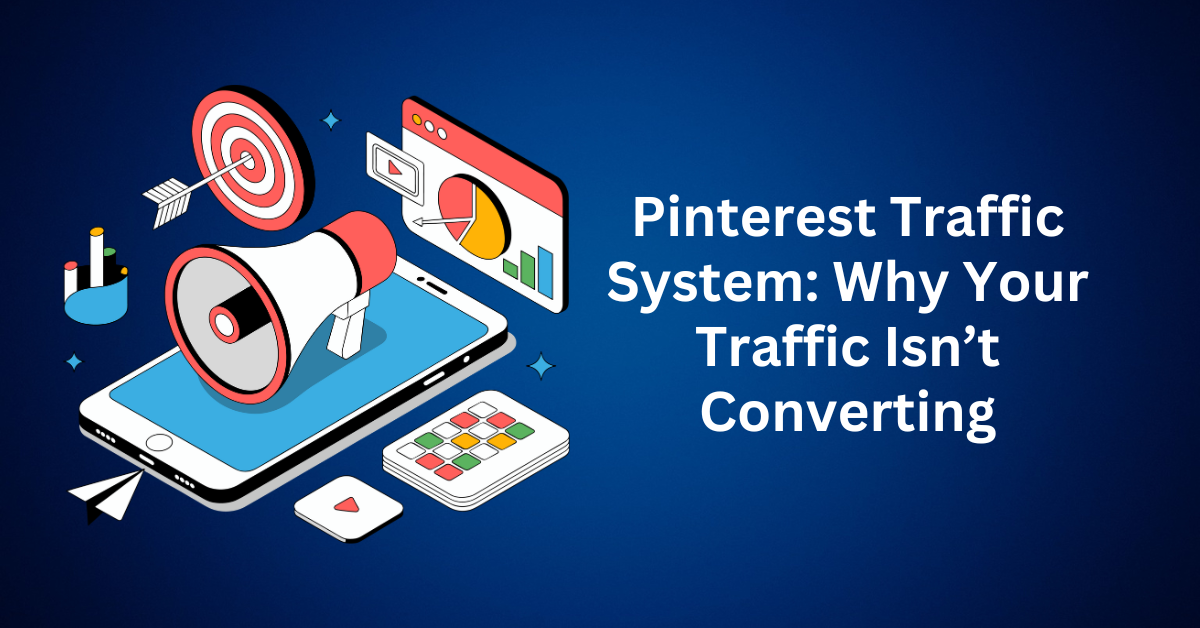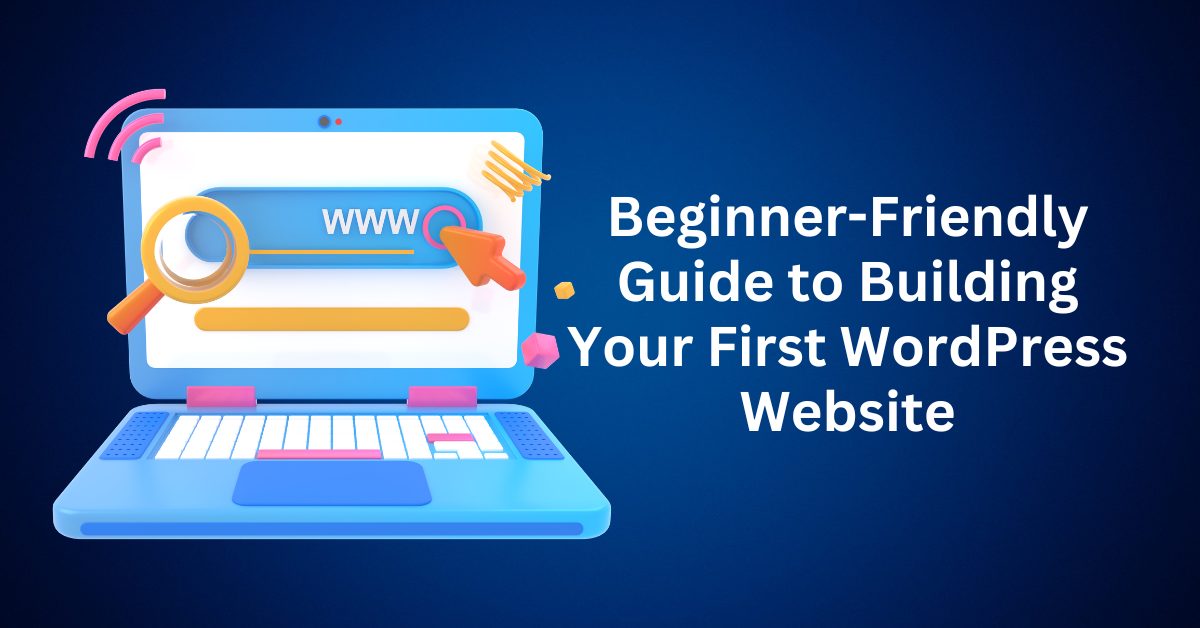Are you thinking of starting an eCommerce store? Not sure which platform to start? Shopify E-commerce or WooCommerce?
Today, we are going to talk about the 2 big eCommerce store-building platforms, Shopify and WooCommerce. Both platforms are awesome, but of course, there are some pros and cons to using either one.
As a business owner, the platform should be the last thing you worry about. And hence, choosing the right eCommerce platform that fits your business is the first thing you need to do right.
In this guide, we will show you a detailed comparison of Shopify vs WooCommerce. The goal is to break down their advantages and disadvantages to help you choose the best option for your eCommerce store.

Table of Contents
ToggleWhat is Shopify E-commerce?
Shopify is an all-in-one platform that makes it easy for you to create a fully functional eCommerce store. You can accept payments and manage your inventory all from a single platform. Shopify has made it ideal for anyone to start selling.
What is WooCommerce?
WooCommerce, on the other hand, is an e-commerce plugin built for WordPress. You need to first have the WordPress site installed and running. Then, add the eCommerce functions to it. Because of its open-source nature, you can customize every aspect of your store and build custom extensions.
What to Look for in Your eCommerce Platform?
When deciding on the platform, always remember this. Are you or your team going to manage it? What is their technical level? There are also a few other things that you absolutely need to keep in mind when starting an online store.
Depending on the number of products that you are selling and the business model that you are looking at, you should only choose the one that suits you.
And here, we will explain in-depth about both Shopify and WooCommerce platforms so you can have a better understanding of both platforms and which one is best suited for your needs.
Ease of Use: Shopify vs WooCommerce
Most users starting an online store are not web designers or developers. Rather, some start as a solopreneur. That’s why it is very important to minimize the technical knowledge required to run and maintain the online store.
Shopify – Ease of Use
Shopify is a fully hosted platform, which means you don’t need to install, manage, or update any software. You also don’t need to worry about hosting, security, performance, backups, and compatibility issues. All you need is to sign, and you are good to go.

As soon as you sign up, you will see the main dashboard.
From here, you can see everything is marked clearly on where to add a new product, check your new order, store settings, and theme settings. Shopify does offer free and paid themes for you to get started. And to customize a theme in Shopify, you just need to do is just select the section element you want, and the entire section is added.
Shopify comes with an intuitive drag-and-drop interface. What you need after adding the elements is to drag to rearrange the flow and use the dropdown list to select how many items you want.
This is good for most because you can get the best section designs that are commonly used in a high-converting eCommerce store. But the downside would be a lack of customization capability. Everything is modular, and if you want to change something inside, it’s the HTML and CSS coding.
For most users, the large selection of extensions and themes available in Shopify is more than enough to get started and grow your online store.
WooCommerce – Ease of Use
WooCommerce is not a hosted platform like Shopify. It is a plugin under the WordPress site. This means you need to first get your WordPress site up and running. This includes getting web hosting, configuring the WordPress site, installing WooCommerce plugins, managing updates, keeping backups, and making sure that your website is secure.
As it is running on the WordPress platform, it is very flexible to work with WooCommerce. Leveraging the powerful capability of WordPress, you can first have full control of the whole platform, and there are over 50,000 WordPress plugins for you to enhance your website functionality.
For building the website itself, you can opt to use a drag-and-drop web builder plugin like Elementor to build your beautiful store.
But one of the biggest downsides, when compared to a Shopify store, would be setting up the entire site and managing everything on your own. Also, for the payment gateway, you have to sign up for a merchant account or a similar service like Stripe / PayPal.
While the WooCommerce guided setup wizard is helpful, it does not come close to the ease of use of Shopify.
Cost: Shopify vs WooCommerce
The true cost of using Shopify
Shopify offers 3 main plans for everyone to sign up for. The basic plan starts at $19 per month, with $1 per month for the first three months. The Shopify plan comes with $49 per month, and the Advanced plan comes with $299 per month.
Each of these plans includes an SSL certificate and web hosting.
The basic plan comes with enough features to set up a new online store. You can add unlimited products, 2 user accounts, unlimited file storage, and more.
However, if you need to add on the other functions via apps, that might be an additional cost, depending on the apps.
Payments are another factor that affects your costs. Shopify offers its own Shopify Payments solution, which costs 2.9% + 30 cents per transaction.
If you want to use third-party payment gateways or your merchant account, then you will be charged a flat fee of 2.0% for all transactions. When you upgrade to a higher plan, you can get the fee reduced as well.
The true cost of using WooCommerce
WooCommerce is an eCommerce plugin for WordPress.org (also known as self-hosted WordPress). It is open-source and freely available as a WordPress plugin.
However, you’ll need a domain name, an SSL Certificate, and a WordPress hosting account to start a WooCommerce store.
Typically, a domain name costs $14.99, and web hosting costs around $2.95 /per month.
Bluehost is the official web hosting provider recommended by WordPress.
And for every Bluehost web hosting sign-up, you will get a domain name together with the subscription with other free stuff offered.
Click here to check out the exclusive offer for our community
As you can see, the cost of starting a basic WooCommerce store is significantly lower than Shopify. And, WooCommerce also doesn’t charge you a percentage fee for your transactions.
But when your site grows, the same goes for your hosting cost, as you may need more advanced hosting. And the other plugins cost to add to the functionality of your store.
However, one clear advantage of using WooCommerce is that you can often find free alternatives to paid extensions. With the number of free themes and free add-ons available for WooCommerce, it’s the winner when it comes to cost.
Payment Methods: Shopify vs WooCommerce
This is the most important part of an eCommerce store. Being able to collect money from your customers. There are many payment gateways that you can use. Some payment methods may not be suitable for you, and others may not be available to your customers.
This is why it’s important that your store can accept different payment options.
Payment Options in Shopify Ecommerce
Shopify offers plenty of payment options that you can use to receive payments from customers. It has its payment solution called Shopify Payments as well as all popular third-party payment gateways. Depending on your country, you can select different payment options.
The downside is that Shopify charges an extra 2% fee on each transaction made through third-party payment gateways. Shopify Payments has flat credit card fees, but no other transaction fees.
Payment Options in WooCommerce
WooCommerce offers PayPal and Stripe payments by default. But it also supports all other popular payment service providers through add-ons. A quick search in the extensions store found that WooCommerce supports up to 67 extensions in the Payment category.
WooCommerce even has support for many regional and less popular payment services. Since WooCommerce is open-source, anyone can create add-ons and integrate with WooCommerce.
As a self-hosted platform, you are only charged transaction fees by your payment gateway or your bank. WooCommerce never charges you any fee for your store transactions, which is a major plus.
Integrations and Add-ons: Shopify vs WooCommerce
Add-ons are good for any web-building platform, as you want a lightweight website with the things you need. A bad builder platform offers everything by default, making your website’s loading speed slow.
Common things like email marketing software, lead generation tools, analytics tools, etc.

Both Shopify and WooCommerce have massive extension directories, and they integrate with many third-party services. There is a plugin for everything.
Shopify Add-ons and Integrations
Shopify comes with an App Store where you can buy add-ons for your Shopify store. This is very important in adding functionality to your eCommerce store. With hundreds of apps in the store, you can find the one you need.
For email marketing, they have integrations to autoresponders like GetResponse, which helps you grow your email list and manage your email marketing campaigns through it. There are also other apps for SEO optimization, bundle offers, product reviews, discounts, countdowns, and more.
Same advice here, only installs those you need. Don’t overload your site.
WooCommerce Add-ons and Integrations
WooCommerce itself does provide some extensions that work with it. But as mentioned before, as it is running on WordPress, you can leverage the WordPress plugins as well.
Due to the low barrier of entry, there are a lot more integrations and add-ons available for WooCommerce than for Shopify. Almost all third-party tools and service providers have their plugins to seamlessly integrate with your WooCommerce store.
And if you need something special, it is also easier to get a developer to build and integrate with WordPress. Your plugin will not need to go through the review as Shopify did.
Shopify vs WooCommerce Dropshipping
Dropshipping is a business model where you don’t keep inventory. You leverage your supplier’s inventory and only order the item once someone makes a purchase. After you receive the money from them, you order from your supplier and then, and then they will ship it to your customer.
Due to its low overhead, dropshipping has become a popular business model around the world. But how can both platforms adapt to the dropshipping business model? Let’s find out.
Dropshipping with Shopify
Shopify dropshipping has been one of the most mentioned keywords online. Many mentors had been teaching how to build a dropshipping business with Shopify. Why is it so? Shopify is suitable for anyone that just started and wants to build an eCommerce business.
With the integration with platforms like AliExpress and print-on-demand vendors like Printify and Printful, one can easily import products from these platforms to their Shopify store.
Dropshipping with WooCommerce
WooCommerce is also a popular choice among dropshipping businesses. Mainly because WooCommerce has lower costs compared to Shopify and allows you to install extensions that automate the fulfilment process.
You can easily find extensions that allow you to instantly import products, fulfil orders from your website, and more.
Scalability and Growth: Shopify vs WooCommerce Ecommerce
When you select a platform to run your business, you should start considering whether it can cope when you have a 7 or 8-figure business. It may seem early to start thinking about it now. But you should avoid any hiccups when upgrading in the future.
For example, you may need more product listings and more staff to manage your business.
Scalability on Shopify Ecommerce
Shopify provides 3 standard plans. You may start with the Basic Shopify plan and upgrade to Shopify or the Advanced plan anytime when required. However, if the Advanced Shopify plan cannot fulfill your business requirements, you can always upgrade to the Shopify Plus plan.
The Shopify Plus plan is customized for big business requirements, where the price is around $2,000 per month, offering enterprise-grade service.
Scalability on WooCommerce
WooCommerce is a self-hosted platform, which means you need to take care of the hosting server capability to avoid server breakdown due to storage or bandwidth issues as your business grows.
If you are starting on shared hosting, you will probably need dedicated hosting at this point in time.
By doing this, your hosting cost will increase, but be very sure to control resources and only take what you need. If you are not a technical guy, you will probably need experts to consult for this.
For a hassle-free solution, Shopify will do all this dirty work, and you simply upgrade the plan.
Technical Support for WooCommerce vs Shopify
Both WooCommerce and Shopify are quite easy to use. However, there will be times when you need some help. This is when support comes into place.
Technical Support on Shopify
As Shopify is an eCommerce store-building platform that charges you monthly for the SAAS service, you can expect technical support for what you pay for. The support team at Shopify knows everything about the platform and is able to escalate to the right person if the 1st level of support is unable to resolve it.
For all plans, Shopify provides 24/7 support via live chat, phone, email, and Twitter. Not only that, but there are also the documentation and communities for you to raise your questions if you want.
It also maintains a directory of Shopify Experts that you can hire if you need extra help or if you want to integrate a third-party solution.
Support Options for WooCommerce
WooCommerce is one of the world’s most popular eCommerce platforms. There are many experts out there to help when required. Not only that, but WooCommerce also has extensive documentation, tutorials, and guides that allow you to help yourself.
But one thing about WooCommerce is that you are putting every single bit together on your own. If it’s a web hosting issue, you need to talk to your hosting provider, and if it’s the theme or extensions, you will need to get support from the respective team for support.
There are many people out there who may be able to help you, but still, it’s a hassle to get good support on time.
Shopify Vs WooCommerce: Which Platform is Better for E-commerce?
Shopify and WooCommerce are both powerful platforms to start your eCommerce store. There is no right or wrong in choosing either one.
If you want something simple, then Shopify is it. An end-to-end solution for an eCommerce store. And, everything can be done pretty fast.
However, there is a risk in running your business on others’ platforms only. You have no control over it. Shopify can change the plan, rules, or even take down some features.
WooCommerce, on the other hand, is an open-source platform that gives you full control of your website. It costs less compared to Shopify, as most of the things you are handling on your own, rather than an end-to-end managed solution.
You are the one to put everything together. For a beginner, it might take some time to learn and build the store before you can start selling. But don’t worry about that, there are a lot of video tutorial on YouTube that teaches you how to do that.
So, if you are looking for a hassle-free solution, then Shopify is what you need. And, if you are looking for more control over your store, then WooCommerce is for you.
Still unable to make up your mind? Get the free trial from Shopify to start feeling it yourself.







